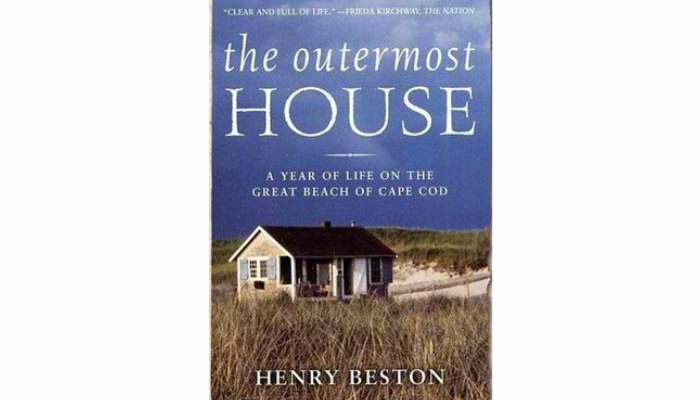Henry Beston

A few years ago, when meeting my Corps of Engineers regulator at South Sycamore wetlands, he had an assistant along. During conversation I mentioned Aldo Leopold, and the assistant asked who this person was. I was astounded to learn that she had four years of college in Iowa, had training to be a wetlands regulator, and had never heard of Aldo Leopold.
However, upon hindsight, I recognized that my own nature/conservation readings have also contained some large gaps. For example, even though Donald Culross Peattie’s exquisitely written A Natural History of Trees of Eastern and Central North America was published when I was a child, I didn’t discover it until coming to Iowa as a young professor.
So occasionally in this blog series, I will point out interesting authors who may have escaped your attention. Today it is Henry Beston, best known for his book The Outermost House.
Beston often lived alone in a shack on a remote beach on Cape Cod (the outermost house) and was content to write about the wind and the waves, the birds and the sky, and cook his dinner on a wood stove and go for a walk in a storm, which has led some to compare him to Thoreau. But this does not describe the man. Beston had a girlfriend and later married her, he was not particularly judgmental of himself or others, and he took delight in the farmers and tradesmen of his neighborhood. He also loved the people of the St. Lawrence River and the southeast edge of Canada, including the Indians of the remote wilderness villages, taking long excursions to meet them and learn their history.
To me, the portions of his writing that I love to read are just the daily rural down-home stuff of several generations ago, woven through with the themes of nature he so thoughtfully observed. And sometimes a beautiful gem of wisdom or insight would just appear amongst his writings about otherwise prosaic experiences. My favorite paragraph is his perspective about animals:
“We need another and wiser and perhaps a more mystical concept of animals. Remote from universal nature, and living by complicated artifice, man in civilization surveys the creature through the glass of his knowledge and sees thereby a feather magnified and the whole image in distortion. We patronize them for their incompleteness, for their tragic fate of having taken form so far below ourselves. And therein we err, and greatly err. For the animal shall not be measured by man. In a world older and more complete than ours, they move finished and complete, gifted with extensions of the senses we have lost or never attained, living by voices we shall never hear. They are not brethren, they are not underlings; they are other nations, caught with ourselves in the net of life and time, fellow prisoners of the splendor and travail of the earth. [From ‘Autumn, Ocean, and Birds’]”
This blog series at Bur Oak Land Trust is a fine opportunity for us to share our favorite conservation and nature writers with like-minded people. How about sharing yours with us?


